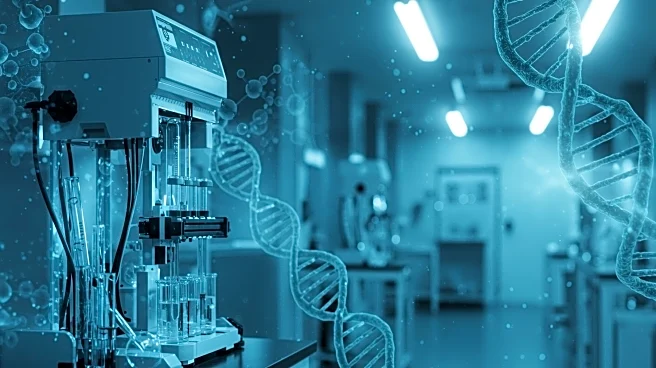What's Happening?
Researchers are focusing on genetic modifications to address the global food supply crisis exacerbated by climate change. As temperatures rise, key crops like wheat, maize, and barley are experiencing reduced yields due to the impact on photosynthesis. Genetic modifications, such as insect-resistant corn and heat-resistant apple varieties, are being developed to help crops withstand extreme conditions. These modifications are seen as a step beyond traditional crossbreeding methods, aiming to create 'designer crops' tailored to future climates. The Food and Drug Administration has deemed genetically modified foods safe to eat, and rigorous testing is conducted before they reach the market.
Why It's Important?
The development of genetically modified crops is crucial in maintaining food security as climate change threatens agricultural productivity. With millions facing hunger globally, enhancing crop resilience can mitigate the impact of extreme weather conditions on food supply. This innovation not only supports sustainable agriculture but also reduces reliance on harmful pesticides, contributing to environmental conservation. The ability to adapt crops to changing climates ensures long-term food availability, benefiting farmers, consumers, and the global economy.
What's Next?
Continued research and development in genetic modifications are expected, with some solutions years away from implementation. As scientists refine these technologies, collaboration with regulatory bodies will be essential to ensure safety and efficacy. The agricultural sector may see increased investment in genetic research, and farmers could adopt these innovations to enhance crop yields and sustainability. Public awareness and acceptance of genetically modified foods will play a role in their widespread adoption.
Beyond the Headlines
The ethical implications of genetic modifications in agriculture are significant, raising questions about biodiversity and the long-term effects on ecosystems. Balancing innovation with environmental stewardship will be crucial as these technologies evolve. Additionally, the role of biotechnology in addressing food security highlights the intersection of science and policy, necessitating informed decision-making by governments and stakeholders.










